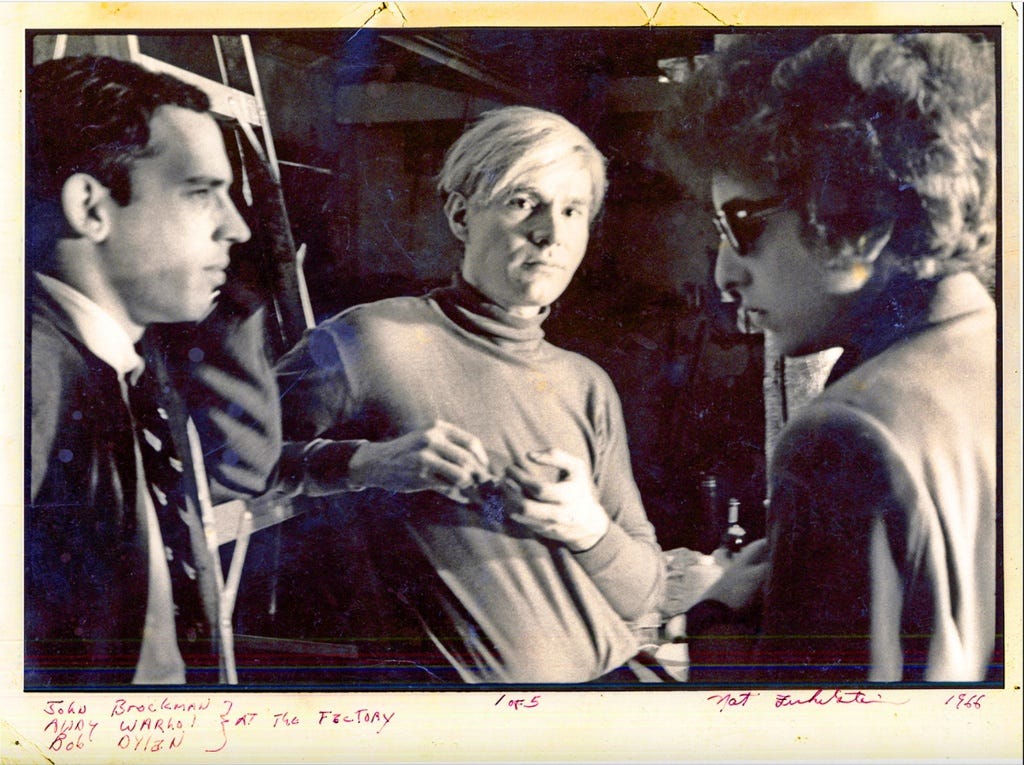Happy Birthday, John Brockman!
Today is the 80th birthday of John Brockman (Whom God Preserve), pictured here at one of our extended lunches in London. He’s the literary agent who saw that there was a gap to be filled between C.P. Snow’s ‘Two Cultures’ and encouraged some of the world’s leading scientists to think about writing books. He’s one of the most interesting people I know, and there was a nice virtual party for him online tonight with a number with speakers including Stewart Brand, George Dyson, Ian McEwen and a brace of Nobel laureates celebrating the role he has played in their writing careers.
Here’s an interesting photograph of the young Brockman with two friends.
Quote of the Day
“It is usual to speak of the Fascist objective as the ‘beehive state’, which does a grave injustice to bees. A world of rabbits ruled by stoats would be nearer the mark.”
George Orwell in The Road to Wigan Pier.
Musical alternative to the morning’s radio news
Jarleth Henderson, Uilleann pipes, and Andy May, Northumbrian pipes.
This is lovely — a friendly competition between two piping virtuosi who play different instruments. The music starts about 2 minutes in, but the banter beforehand is worth hearing.
Reminds me of the duelling banjo sequence in John Boorman’s great film Deliverance, but without the menace.
Long Read of the Day
Neuroprivacy as a Basic Human Right
If you think (as I do) that facial-recognition technology is toxic then this article suggests that even more toxic tech may be on its way. The whole point of what we now call ‘surveillance capitalism’ is to surveill people so intensively that their future behaviour can be accurately predicted and those predictions exploited for commercial or other gains. Initially, the surveillance was only of online behaviour (the digital ‘breadcrumbs’ that we leave behind), but then it moved to learning from what we do with our smartphones, and then into our homes with so-called ‘smart’ devices which monitor our indoor lives. The next frontier involves getting right inside our heads — monitoring brain activity for some as yet unspecified purposes.
Fanciful? I don’t think so. This essay suggests that we need to start thinking seriously about the implications of this emerging technology. Fortunately, some people are — in the Chilean parliament, no less. Late last year the country’s lawmakers voted unanimously to adopt a new bill that enshrined “neuro-rights” for the country’s citizens by giving neuronal data the same status as donated organs, which are illegal to traffic or manipulate under the country’s constitution.
Read on.
If the evolution of machine-learning and facial-recognition has taught us anything, it is that democracies need to get ahead of this game.
Thanks to Sheila Hayman for alerting me to this.
Uber’s UK supreme court defeat should mean big changes to the gig economy
My Observer column this morning:
Move fast and break things” was famously the mantra of Silicon Valley tech companies. It was passionately embraced by Uber, the ride-hailing company set up to put taxis out of business. Unfortunately for it, one of the things it broke was UK employment law – which led the UK supreme court to issue a judgment on 19 February confirming that this was indeed the case.
Uber (for those who, including this columnist, have never used it) is a technology platform that puts customers seeking a taxi in touch with drivers who own cars and are willing to provide rides. Everything that happens in that process, other than conversations between customers and drivers, is controlled by the platform. Uber’s case – and business model – depends on drivers being regarded as self-employed contractors, ie cheap. The case decided by the court hinged on the question of whether drivers were indeed merely contractors, or “workers” entitled to a minimum wage and holiday pay – protections they were unable to enjoy while Uber classified them as self-employed…
Do read the whole thing.
Other, hopefully interesting, links
Happy ‘farmily’: portraits of people and their animals. Lovely idea, nicely executed. Link
Quentin’s blog moves into its third decade. It’s always been a delight. Link
Museum Alive: 3D animations of extinct creatures. Fascinating app brings scientifically accurate 3D models and animation of now-extinct creatures to life in augmented reality, with a commentary by David Attenborough. It’s a sobering demonstration of the computing power of contemporary handheld devices. Sadly, for IOS (i.e. Apple) devices only. £2.99 in UK. Here’s a link to the trailer.





